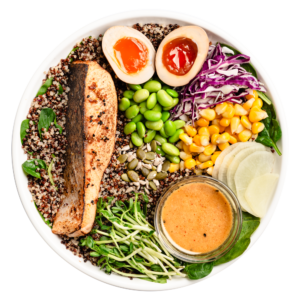Do you hate talking about your feelings? Do you hide your true emotions from time to time? Compared to Western culture, it seems like sharing genuine feelings is not as welcome in Asian culture. People generally suppress their emotions for a few key reasons, such as being raised in an environment that equates feelings to “weakness”, not wanting to get hurt or because they lack confidence. We suffer alone, when it is more effective to find someone to talk to about them.
The Benefits of Talking About Your Feelings

- Feelings don’t disappear: It is better to face your feelings head-on to deal with whatever is going on with you. Letting someone else know about your inner struggle isn’t a sign of weakness, but part of taking charge of your wellbeing and doing what you can to stay healthy.
- Self-validation: Talking about your feelings validates that what you’re experiencing is real and means something to do. Ignoring those feelings would be invalidating your experience and values.
- Stress relief: You’re only upset about things when you care about them a lot. If we don’t properly process our emotions, they stay with us and give us more stress and anxiety.
- Find support and understanding: Your family and friends may worry about you when they see you having a bad day and holding back your emotions. People who care about you may find it difficult to support you when you don’t tell them what you’re going through and what kind of help you need.
- Gain new perspectives on a situation or feeling you’re struggling with: The persons you confide in will see the same situation differently than you do. By talking to someone about it, you may be able to more objectively analyse a situation.
How To Talk To Other People About Your Feelings

There are many situations where you get to talk about your feelings honestly, ranging from venting to your best friend about work to hashing out your emotions with a licensed therapist. This allows you to examine and express the emotions you are having, instead of building a solution. Here are a few ways to make the most of your conversations:
- If you feel vulnerable when sharing your emotions, talk to someone you feel safe and comfortable with. This is a personal and private conversation. So if you’re processing something difficult, find a person who is open, understanding and empathetic.
- You can talk to people face to face, write a letter or video call them. Use whatever communication method makes you feel the most comfortable.
- Give some thought to what you want to say during your conversation and how much you want to share. However, try not to overthink or over plan. Allow some room for flexibility so that you can respond to how the conversation unfolds in the moment.
- Help people understand what you’re going through by describing how your feelings are impacting your life and what actions they’re promoting you to take. This could help them relate to you and understand your situation.
- It’s good to tell people how you feel about the emotions you’re experiencing. For example, you can say that “I feel scared of disappointment when I feel nervous about the results of my job interview”.
How to Respond When Other People Talk About Their Feelings to You

If you take away one thing from this article, it is you have to focus on connecting with them instead of trying to change or fix the feelings of the person you love.
- Active listening: This is when you’re not thinking about anything other than what is being said to you. When someone is talking to you about your feelings, you should be spending time trying to understand their viewpoint or feelings. You shouldn’t be trying to develop arguments or rebuttals to what they are saying. Truly listening to your loved ones or friends lets them know that you are interested in their thoughts, ideas and feelings, and builds trust.
- Avoid judgement: Remove any preconceived ideas and judgements about your friend’s or family member’s feelings and needs. Practice non-defensive listening and try to be curious about their feelings. Be fully present in the conversation.
- Be empathetic: One of our deepest needs as humans is to feel understood, and true understanding is not possible without empathy. You have to be willing to feel with the person confiding in you and to try and understand their inner world. Don’t say things like “it could be worse…”, “I think you should…” or “This could turn into a positive experience for you if you just..”. These phrases invalidate the other person’s feelings.
A hard task, but worth the pain

Confiding with others about our struggles and fears is a very difficult thing to do, especially if you had negative experiences with reaching out to others in the past. It’s also not easy to develop the skills to be a good listener to others. Ultimately, be patient with yourself because it takes time to open up, choose the right listener, and develop skills to name emotions.




